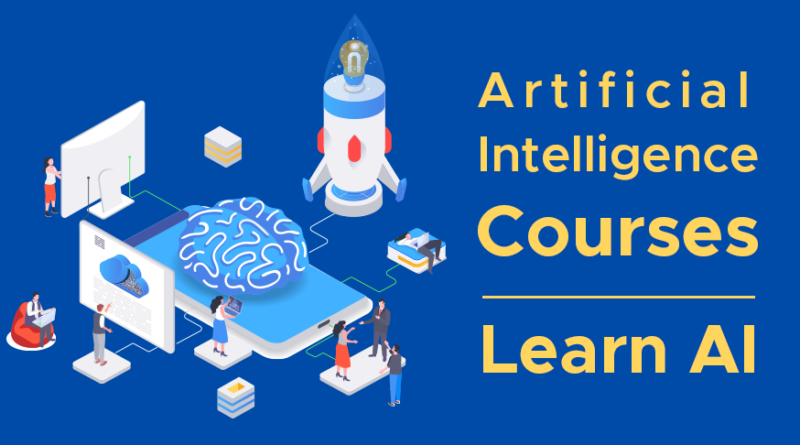AI Course Malaysia: Unlocking the Future of Technology
Artificial Intelligence (AI) is no longer just a buzzword; it has become an integral part of our lives, transforming the way we work, communicate, and live. As AI continues to play a pivotal role in shaping the future, the demand for skilled AI professionals is on the rise. In Malaysia, AI courses are gaining immense popularity, as they provide individuals with the knowledge and skills needed to harness the power of AI and contribute to the technology-driven future. In this article, we will explore the significance of ai course in malaysia and how they are unlocking the future of technology.
The Rise of AI in Malaysia
Malaysia has been making significant strides in the field of AI, with various industries realizing the potential of AI technologies in improving efficiency, decision-making, and competitiveness. As a result, there is an increasing need for professionals who can understand, develop, and implement AI solutions.
AI has been integrated into numerous sectors in Malaysia, including healthcare, finance, manufacturing, and even agriculture. For example, AI-powered healthcare systems can assist in disease diagnosis and treatment recommendations, while AI-driven chatbots are used in customer service and support in various industries. The implementation of AI not only enhances the quality of services but also creates new job opportunities and improves economic growth.
Importance of AI Courses
The importance of AI courses in Malaysia cannot be overstated. These courses serve as a gateway to acquiring the knowledge and skills necessary to work in the AI field, making them crucial for both individuals and the nation’s technological advancement.
- Meeting the Demand for AI Professionals: As mentioned, there is a growing demand for AI professionals in Malaysia. AI courses are designed to bridge the skills gap and provide students with the expertise required to fill these roles. Graduates of AI courses can pursue careers as data scientists, machine learning engineers, AI researchers, and more.
- Driving Innovation: AI courses encourage innovation by equipping students with the tools and knowledge needed to create AI-based solutions. This innovation can be applied to various sectors, from developing smart cities to optimizing supply chains, thereby improving the quality of life and economic growth in Malaysia.
- Global Competitiveness: With the global technology landscape becoming increasingly competitive, Malaysia must ensure it has a skilled workforce to stay ahead. AI courses enable students to keep up with international AI advancements and contribute to the country’s competitiveness in the global market.
- Interdisciplinary Learning: AI courses in Malaysia often promote interdisciplinary learning, allowing students to combine AI with other domains such as healthcare, business, and engineering. This interdisciplinary approach fosters well-rounded professionals who can apply AI in a wide range of contexts.
- Research and Development: Malaysia is also investing in AI research, and AI courses contribute to this effort. Graduates can engage in research and development activities, creating cutting-edge AI solutions and advancing the nation’s technological capabilities.
AI Course Offerings in Malaysia
In Malaysia, a variety of institutions and organizations offer AI courses. These courses cater to a wide range of individuals, from students seeking formal education to working professionals looking to upskill or transition into the AI field. Some popular AI courses in Malaysia include:
- Bachelor’s and Master’s Programs: Several universities in Malaysia offer undergraduate and postgraduate degrees in AI and related fields. These programs provide in-depth knowledge and research opportunities for those looking to specialize in AI.
- Online Courses and Certifications: Many online platforms provide AI courses, making it accessible to anyone with an internet connection. These courses are often flexible and suitable for those who want to learn at their own pace.
- Short-Term Workshops and Bootcamps: Intensive, short-term AI workshops and bootcamps are available for professionals who wish to acquire AI skills without committing to a full degree program. These are especially popular for those looking to pivot their careers.
- Corporate Training: Many companies in Malaysia invest in AI training for their employees to enhance their capabilities and adapt to the changing business landscape. Corporate training often covers AI in the context of the company’s specific needs.
Challenges and Opportunities
While AI courses in Malaysia are opening doors to exciting opportunities, there are also some challenges to consider:
- Access and Affordability: Ensuring access to AI education for all Malaysians, regardless of their socioeconomic background, is crucial. Scholarships, grants, and subsidized programs can help mitigate the cost barrier.
- Quality and Relevance: It’s essential for AI courses to maintain high educational standards and remain relevant in a rapidly evolving field. Regular updates to curriculum and close collaboration with industry partners can help achieve this.
- Diversity and Inclusion: Encouraging underrepresented groups, such as women and minority communities, to participate in AI courses is essential for a diverse and inclusive AI workforce.
- Ethical Considerations: With the increasing role of AI in society, addressing ethical concerns is vital. AI courses should include ethical discussions to ensure that graduates are well-informed about the impact of AI on society.
In conclusion, AI courses in Malaysia are a critical component of the nation’s journey into the future of technology. They not only provide individuals with the skills and knowledge needed to succeed in a tech-driven world but also contribute to the nation’s growth and competitiveness in the global market. By addressing challenges and seizing opportunities, Malaysia can position itself as a leading hub for AI education and innovation, further unlocking the future of technology.
